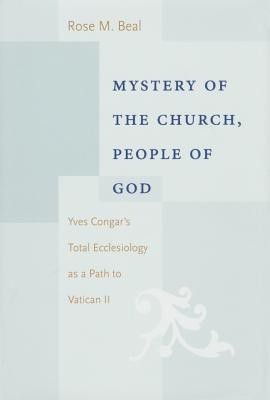Mystery of the Church, People of God(English, Hardcover, Beal Rose)
Quick Overview
Product Price Comparison
How can we approach the mystery that is the church? The French Dominican theologian Yves Congar (1904-1995) explored this theme in works both published and unpublished, from 1931 until his suspension from the Le Saulchoir theology faculty over concern about his "new theology" in 1954. Congar's goal: to develop what he called a "total ecclesiology" or theology of the church. The then-predominant notions of the church as a perfect society, and strong focus on a pyramid-like view of hierarchy over the laity, did not in Congar's view offer an integrated, organic portrait of the church as a mystery or as a whole. The key to ecclesiology, he believed, was to give full place to all of the ecclesial elements and to the relationships that hold them together, often in tension. Congar coined the term "total ecclesiology" in his ground-breaking outline for a theology of the laity, A Way towards a Theology of the Laity. In Mystery of the Church, People of God, Rose Beal argues that "total ecclesiology" is the necessary and appropriate lens for a comprehensive interpretation of Congar's ecclesiological project prior to the Second Vatican Council (1962-1965). Beal works from Congar's published works from 1931 to 1954, as well as from unpublished texts from thesame time period, to integrate and propose a comprehensive interpretation of his ecclesiological purposes and methods. The use of Congar's unpublished materials make this book a unique undertaking. These texts allow Beal to see the "behind the scenes" story of Congar's ecclesiology. They bring insight to a more accurate and informed interpretation of his extensive published corpus, and offer a clearer view of the path towards his contribution to Vatican II's Dogmatic Constitution on the Church (Lumen Gentium).


